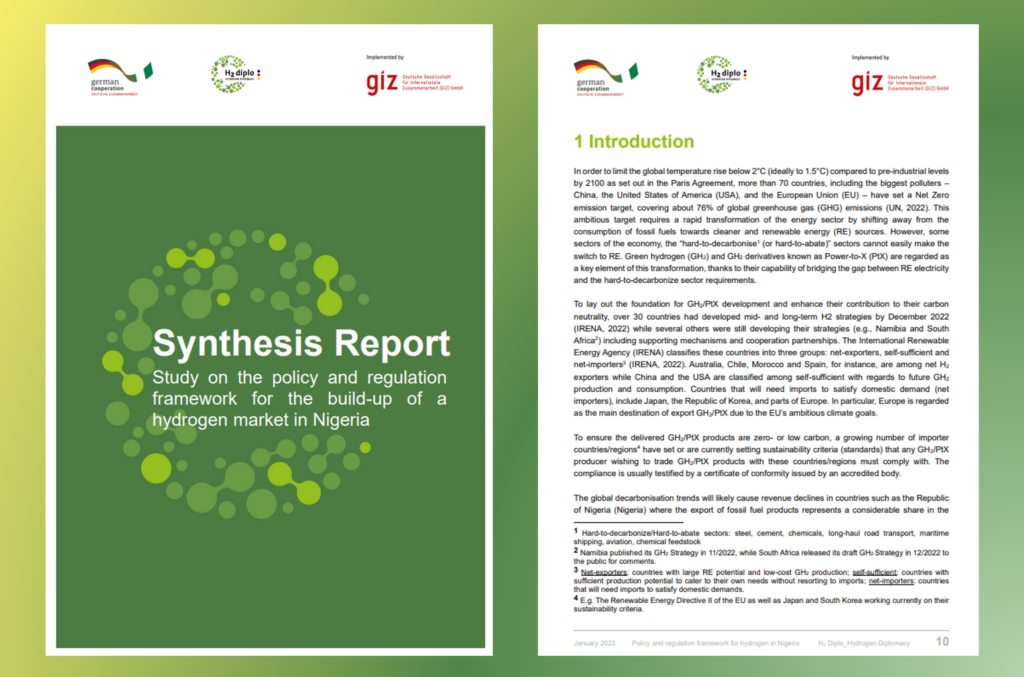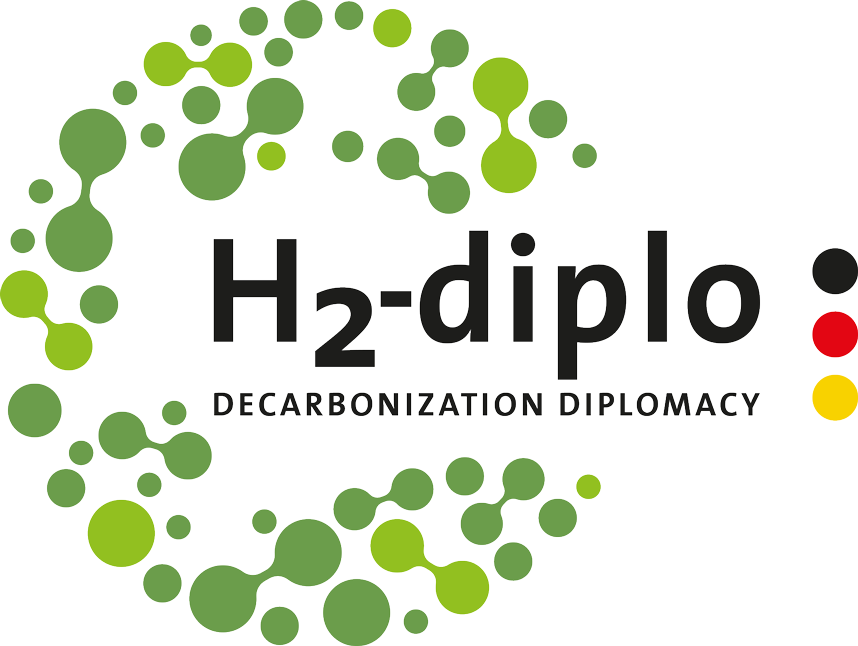
H2-diplo analysis “Synthesis Report: Study on the policy and regulation framework for the build-up of a hydrogen market in Nigeria” is now available!
The global energy transition is considered the backbone of increased climate protection in line with the Paris Agreement on Climate Change. Consequently, governments, companies and international organizations are making commitments to scale up their ambitions towards reducing greenhouse gas emissions and increasing the share of climate-neutral energy sources as well as considering hydrogen production for decarbonization and diversification.
Green Hydrogen (GH2) has emerged as a key enabler for achieving global CO2-neutrality, and several countries have begun to develop GH2 related policy and regulatory frameworks by adjusting existing or developing new policies and regulations to facilitate GH2 integration into their economies.
Concerning Nigeria, the country is endowed with huge renewable energy and natural gas resources that can be exploited to produce green, blue and turquoise hydrogen necessary to achieve its 2060 Net Zero goal. Furthermore, the introduction of hydrogen in Nigeria’s economy presents the country with an alternative energy export product and can help Nigeria remain as a global player in the future energy market. However, Nigeria does not have neither a standalone policy for hydrogen nor a primary legislation (Act) or secondary legislation (regulations) on hydrogen currently in force. Approaches by frontrunner countries such as the ones presented in this paper, can be adopted and adapted to the Nigerian context.
Ready to dive into the details? You can access the full report now and discover the policy & regulatory recommendations that will foster the successful deployment of green, blue and turquoise hydrogen in Nigeria!
Download the study here: Policy and Regulation Framework for the build-up of a hydrogen market in Nigeria
For more news about the H2-diplo activities, follow us on LinkedIn: H2-diplo – Decarbonization Diplomacy | LinkedIn
